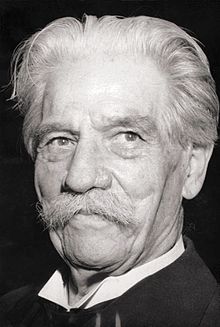
This is day 12 or the Family History Writing Challenge, 2018 — and I’m getting a little slap happy. Let’s discuss spelling.
When I read over what I posted yesterday about the various butcher shops in the Kornmehl family, I noticed something that annoyed me: I had misspelled my great uncle Rudolph Kornmehl’s first name. That is, I used the “ph” spelling at the end of the name, but if you look at the detail of the accompanying picture of his butcher shop, it is “Rudolf Kornmehl Fleischhauer” with an “f.”

Since I make a living as an editor and proofreader — as well as a writer — I found this mistake embarrassing.
Then I thought about why I used the “ph” spelling: I was quoting the book No Place Called Home by Gigi Michaels. Hey, if “Rudolph” is how she spells her grandfather’s name, who am I to change it, ornate shop sign notwithstanding?
Schweitzer vs Schweitzer, the Surname
Which brings me to my other great uncle, the subject of this family history challenge. In the emigration form that he filled out, he spelled his first name with an “f”: Emigration document Adolf Schweizer.
That, then, is what I decided to go with.
But I’ve been less consistent with Adolf’s surname.
Initially, I was certain that, as per the emigration form, there was NOT supposed to be a “t” in it.
There was no “t” in the roughly drawn key to the family picture that my mother drew to the family picture that heads this blog.
There was no “t” in the death notification from Treblinka.

And the t-less nature of my relative’s surname seemed to be confirmed by this Vienna phone book listing:
 But then a friend, who is better at both German and at Gothic fonts than I am, pointed out that the surname of the Adolf and Albert listed here was actually “Schweitzer” in fancy print. The phone book entry probably does not refer to my relative since — among other things — it makes no reference to meat. Nevertheless, it got me thinking.
But then a friend, who is better at both German and at Gothic fonts than I am, pointed out that the surname of the Adolf and Albert listed here was actually “Schweitzer” in fancy print. The phone book entry probably does not refer to my relative since — among other things — it makes no reference to meat. Nevertheless, it got me thinking.
I looked back at other documents, including Adolf and Bertha’s marriage certificate. Sure enough, there his name is spelled Schweitzer:

And also Schweizer. If you don’t want to use a magnifying glass, you’re going to have to trust me that both spellings of the surname appear on the same document.
So where does this leave us — or should I say me — in the blog challenge? (Slightly) more forgiving of my own typos; a bit more convinced that slight name variations are often insignificant, genealogically speaking; and more concerned than ever about how very common the name Schweitzer, in all its variants, is.
I’m fairly certain, however, that the man in the Vienna telephone book who is in business with a man named Adolf Schweitzer is not Albert Schweitzer the African explorer, pictured next to this post’s title–though that was one of the first comments/questions I got on this blog:


Misspelling seems to have been a popular sport in the 18th century particularly. In fact, even Thomas Jefferson is quoted as saying, “You can never trust a man who has only one way to spell a word.” Thanks, Tom!
I’m currently researching relatives on my father’s side. Kaser, my maiden name, has at least 35 spellings that I’ve counted. My current quest, Adam (so far so good) Stahler is also known as Adam Stohler and Adam Stoller. And so it goes. (or gos).
I did not know that about Thomas Jefferson — boo! And, yes, I can only imagine how Kaser and Stahler can go awry. I had a terrible pun about Kaiser rolls — as opposed to a rye — that won’t stay put this morning… Sorry, and thanks.
Not only do our ancestors change the spelling, many people spelled it which ever way they ‘thought’ it should be. Common for officials, priests and government clerks too.
So I am not sure how we family historians can be so sure which is the right way.
I guess we can choose consistency and then add an endnote with all the variation.
Very true! It’s not many relatives who put up signs like my great uncle did with the name of his preferred spelling. And even then, his granddaughter changed it. Those variations sure lead us down many wrong paths to find relatives; footnotes are definitely useful for anyone seeking to do their own search.